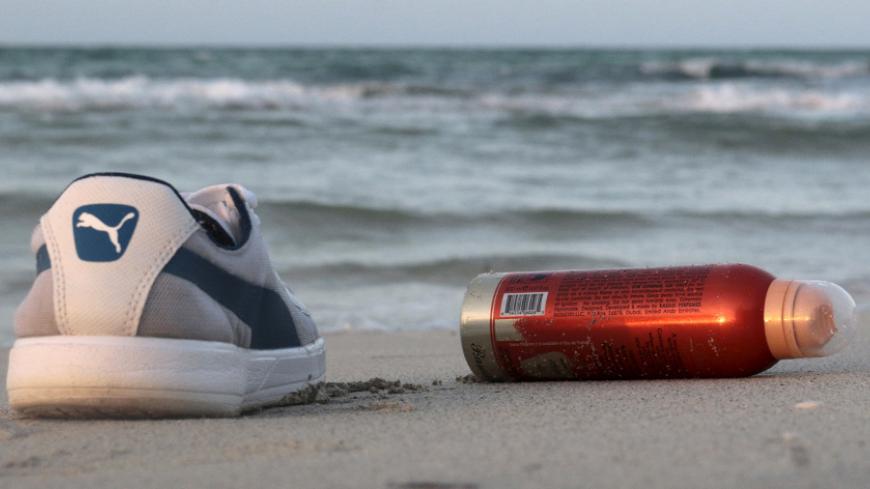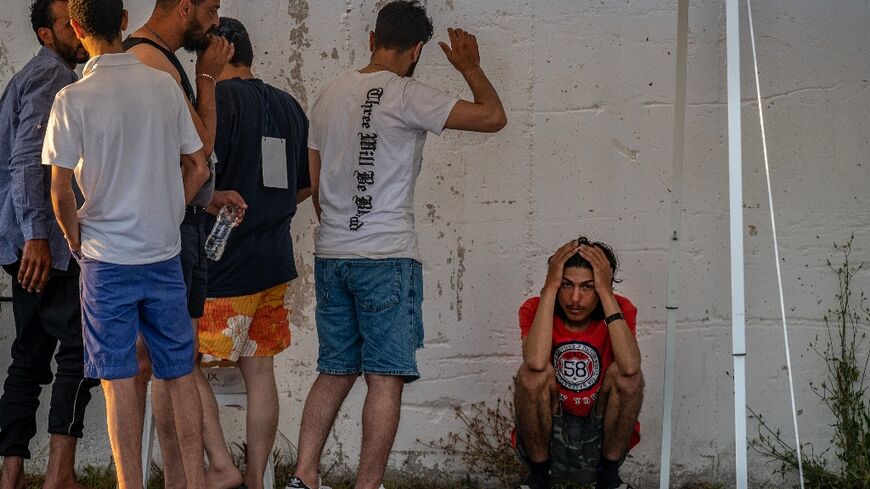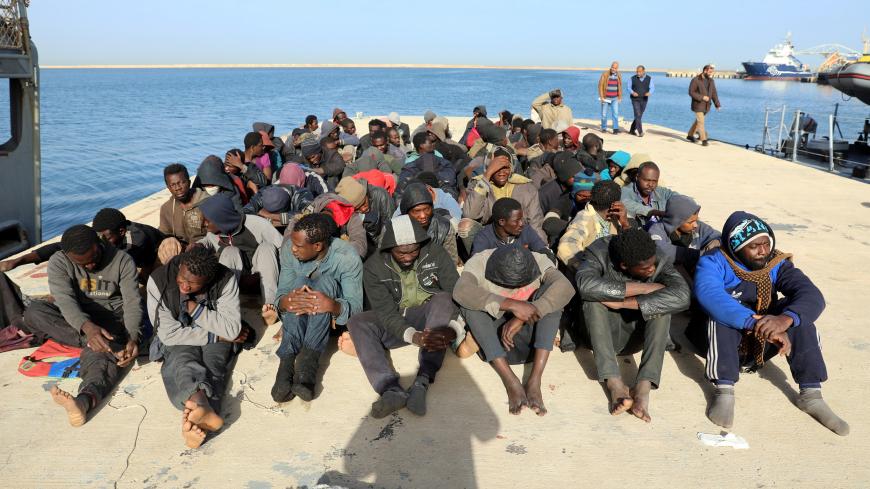In Libya, human traffickers turn to TikTok to promote services
Human traffickers in the North African country are exploiting the social media platform to promote alleged safe journeys to Europe.

TRIPOLI, Libya — TikTok has transformed from a borderless platform into a tool used to promote migration across boundaries.
In Libya, traffickers have exploited the platform's wide reach and lack of proper oversight to promote illegal activities, and TikTok has become a haven for human traffickers preying on vulnerable migrants. With a surge in the number of refugees and illegal migrants in the country, smugglers have turned to TikTok to promote their services and entice new victims.
Shocking scenes
Omar al-Hamali, a 22-year-old Libyan who escaped to Germany a few months ago after securing a journey through TikTok, told Al-Monitor via WhatsApp, “Libyans will always find a way to leave Libya. There is no future, and [we face] the threat of abduction, extortion, and loss of freedom. We faced beatings and recklessness from armed men who worked with the smuggler, but today I've started a new life.”
About six months ago, Hamali, who worked as a barista in Tripoli, reached out to a smuggler via a TikTok user (the page has now been removed) and paid him $2,300 that he had saved from his job to flee to Europe.
He spent two weeks with 170 people in a warehouse in the coastal city of al-Khums in western Libya, where they had little to eat but rice, bread, and cheese.
When the time came to leave, Hamali recounts, “We were forced to flee” over a long distance between the warehouse and the beach “in a coastal area while they beat us with their rifles.”
“I arrived at the beach exhausted,” he said, before embarking on a terrifying journey across the sea, during which the passengers lost consciousness for several days due to seasickness.
Salem Zegnani, a 24-year-old from Tunisia who came to Tripoli for work, secured a sea trip to France last year via a smuggler on TikTok under the username @nm1971nm9. He paid him $2,000 to move from Tripoli to al-Khoms, from where he would cross the sea.
When he embarked on his journey, “I saw children looking for their fathers, and people screaming and falling to the ground. Many couldn't even reach the rubber boat," he told Al-Monitor.
“I knew there was danger, but I didn't expect it to be like this. On the third day, we started drinking seawater,” Zegnani added. Despite his luck in reaching Europe, he doesn't hesitate to warn those considering migration about the “powerful mafia that controls their fates.”
“I wanted to live my life, learn, and help my family,” he said.
Ahmed Hamza, the head of the National Human Rights Committee of Libya, a Tripoli-based NGO, called for a ban on TikTok in the North African country. Hamza told Al-Monitor that the social media platform's exploitation by human traffickers threatens the safety of individuals in Libya, in addition to promoting illegal activities. By exploiting TikTok's ability to reach a global audience, these traffickers share deceptive videos that depict false promises to those aspiring to a better future.
A security official at the Ministry of Interior who requested anonymity told Al-Monitor over the phone that illegal migration operations will not stop in Libya due to the huge financial revenues earned by traffickers.
However, he confirmed that operations the government has carried out to target and strike smugglers' hideouts has reduced their frequency and disrupted their operations.
Libyan authorities are also arresting undocumented migrants from various countries, including Syria, Sudan, Pakistan, Bangladesh, Nigeria and other African countries, putting them in overcrowded prisons or detention centers.
Human traffickers
Al-Monitor contacted the @dmcmcmcms account on TikTok under the guise of requesting a migration trip. We received an offer of $4,000 from a smuggler, which includes the sea trip to Italy and a life jacket. In an interview conducted via direct message on TikTok, the smuggler said, “We handle all operations through the phone.”
“If the person agrees to the offer, we request a copy of their passport and specify a location where they can deposit the agreed-upon amount. We don't need to meet anyone in person,” the smuggler explained.
The smuggler, who started his operation via TikTok in 2020, says, “In the first year, we smuggled one group of people per month, but now we send two groups of about 126 people every month,” adding, "People are selling their homes to leave.”
The smuggler uses TikTok to attract customers by sharing promotional video clips that depict a fake life of opportunities awaiting those who want to immigrate.
One smuggler, who spoke to Al-Monitor on condition of anonymity, said he quit his official job as a state security officer to work in migrant smuggling in the city of Zuwara, in northwest Libya. He gains huge profits from this work compared to his meager salary as a state employee, which was sometimes delayed for several months, he said.
"It's a lucrative business because it brings in big profits," he said, "and on average, I conduct one smuggling operation a week.”
A source in the Libyan Coast Guard, who requested anonymity given the sensitivity of the issue, told Al-Monitor that the Coast Guard has intercepted about 9,000 migrants at sea since the beginning of this year, while thousands more have successfully reached Italy.
Libya serves as a departure point for migrants from several countries who embark on overcrowded and dilapidated boats, often lacking food, water and basic security measures.
The International Organization for Migration (IOM) reported that based on data collected during January and February of this year, a substantial population of 706,062 migrants, originating from over 44 different nationalities, were distributed across all Libyan municipalities.
This figure denotes an increase from the preceding data collection conducted by the IOM in November and December 2022, which reported 694,398 migrants.






